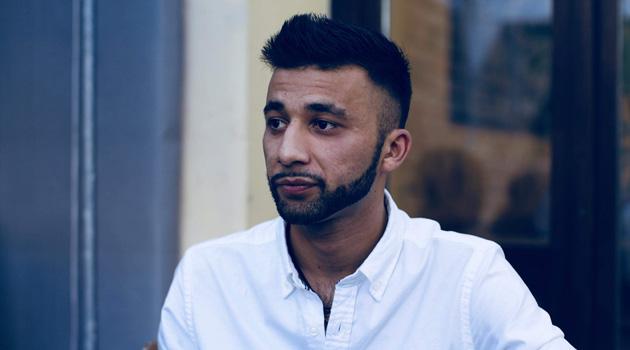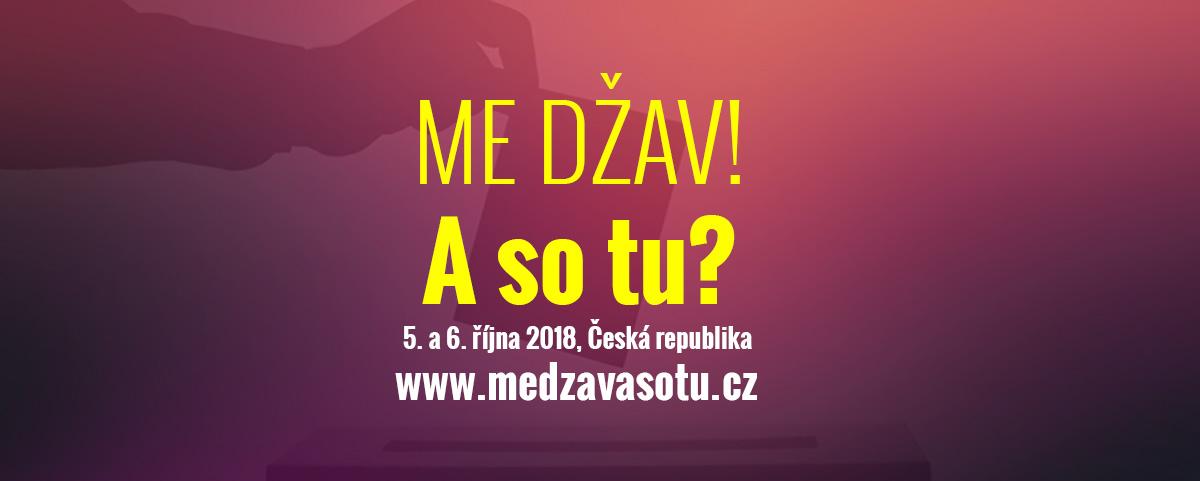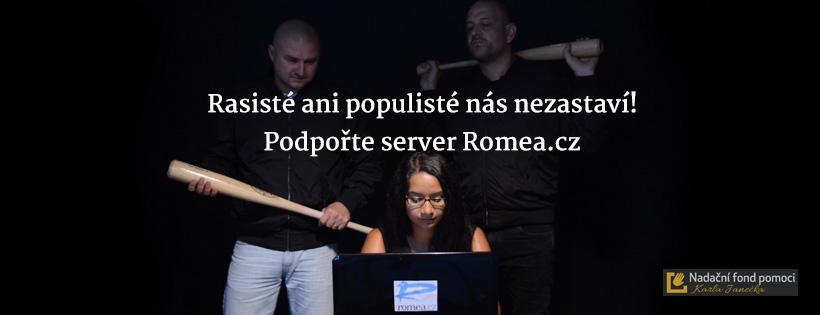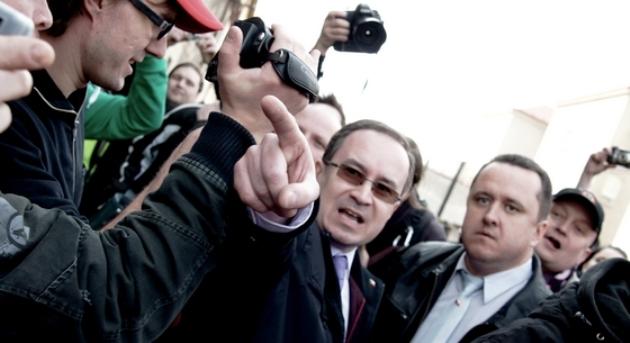Robin Stria, 7th place candidate for the Greens, Brno-střed: The biggest problem in the Czech Republic is housing

More than 160 Romani candidates are running in this year’s local elections on 5 and 6 October. News server Romea.cz is presenting interviews with those we believe have the biggest chance of being elected who are listed in top positions on the candidate lists of registered political parties and movements.
Robin Stria is running in the Brno-střed precinct in seventh place on the Green Party candidate list. The 28-year-old community organizer grew up in foster care and graduated from the Evangelical Academy and the College for Social Law in Brno.
He has worked for the Brno-based NGO IQ Roma Service and is currently employed by the Brno-based DROM center as its community center manager. In his free time he is dedicated to the production of programming for online Romani television, including a sitcom.
Q: You are running for the Green Party in Brno-střed. What are the most important questions in “your” locality now and how does your program propose they should be answered?
A: Generally the most important problem is gentrification. In our neighborhood the consequence of gentrification is that longtime residents are moving away. However, this phenomenon does not just concern the low-income or the Romani populations, but absolutely average residents. The process of transformation of the entire locality is happening so fast that it is not easy to influence it. This primarily has to do with the palpable pressure from developers to build in the places they have chosen. At the same time, we entirely lack any data or research about where people are relocating. In my opinion, mapping that situation would be very important.
Q: The City of Brno was one of the first in the Czech Republic to grasp the subject of housing through its groundbreaking projects like Housing First or Rapid Re-housing. Do you feel it is necessary to beef up those efforts further?
A: Yes, the subject of more equal access to housing for the social groups I have mentioned and the subject of affordable housing in general is absolutely essential. What has been achieved so far is not yet a sufficient response to the causes of this problem. It is necessary to start from the ground up and to admit that the actual cause of all this continues to be discrimination against Romani people in their access to housing. That must be faced up to, and the necessity of supporting affordable housing is something the majority society must be taught. At the same time, it is necessary to pressure the city to make sure it owns enough apartment units and makes them available, and that it becomes able to respond at the level of the state to the existence of this kind of discrimination. It is also important that when votes are taken on specific measures, representatives of the Romani community in particular will be present who will be able to familiarize the commissions voting with the situation “from the inside”. I think our presence will guarantee that there will not be the classic kinds of negotiations “about us without us”.
Q: You say one of the tasks of your eventual work would be to teach the majority society to take a different approach to housing Romani people. How do you imagine that would happen in concrete terms?
A: I think positive examples can serve that purpose very well. I can imagine a type of project where landlords lease their real estate for social housing purposes – that would be the most natural way to prevent the creation of ghettos. One the one hand, property owners will get a return on their investments, and on the other hand, associated social services would be provided by staffers who would support specific families with preventing any problematic situations that might arise.
Q: How would you identify and reach such landlords?
A: I believe it is necessary to base this on personal contacts in particular and to know how to convince the property owners as to why this could be advantageous for them. For example, opportunities for different financial benefits could be offered to them.
Q: Why are you able, compared to other candidates, to reach out to Romani community members in particular?
A: I believe I represent a kind of bridge between the majority society and the minority because I was raised in a majority-society environment, but in my heart there is no doubt that I am a Rom. I create positive values by taking an approach that endeavors to connect these groups. One example of this is the sitcom that I am producing, my theatrical activities thanks to which I have connected ordinary Romani people with professional actors and directors, etc. I am able to represent the Roma voice because I am able to access both sides to the same extent and to advocate for the subjects that are important to us.
Q: Do you speak Romanes?
A: I am learning it, I have a certain vocabulary, but because I did not grow up in the community, it is not my mother tongue. To be honest I do consider that a handicap, I am a bit ashamed of it, and I am planning to make up for that as soon as I can.
Q: What are you offering that is universal, that is not just connected with Roma-related matters?
A: I think that because I am of a democratic mindset, and because it is important to me where today’s politics of abuse of power to achieve advantage, this politics of populism and racism, is heading, I am able to represent the opinions of a significant part of society. I do not want us to end up in a new totalitarianism, controlled by those who have robbed us of our well-being. What I am offering to all of society is a defense of democratic principles.
Q: Do you have the impression that the atmosphere in society has changed to such a degree that the importance of voting has also increased? What is your assessment of some of the election campaigns that have made Romani people their subject matter?
A: In my opinion voting today is more important than it has ever been. Understandably I dislike, for example, what has happened in Dubí, I unequivocally condemn that kind of provocation. These days we are all overwhelmed by information and it is sometimes difficult for people to orient themselves in all of it. That leads to their being willing to believe emotionally-tinged, untrue claims. I am doing my best to avoid that in my campaign.
Q: Are you prepared for the “blows below the belt” that politics involves?
A: Yes, the world of politics is full of such surprises, but to me the truth is important and I will never abandon it. Today is a test of whether we will manage to defend, or rather, to fight once again for the democracy that our grandparents and parents were fighting for 30 years ago.
VIDEO


